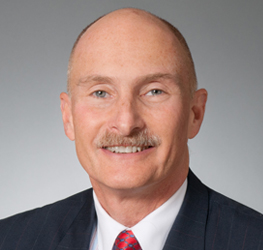Foley is proud to co-host the fifth annual Cancer Center Business Summit, October 13-14, 2011 at the Palmer House Hilton in Chicago. Since it’s inception, the Summit has become recognized as a leading resource for the business of community oncology. The Summit is supported annually by more than 30 sponsoring organizations and accommodates an audience that has grown every year. We are excited to announce that this year, the American Society of Clinical Oncology® (ASCO) will be participating in the Summit in an official capacity.1
The theme of the 2011 Summit is Achieving Accountable Cancer Care. A national consensus has emerged that the rate of growth in health care spending is no longer sustainable. Employers and patients are chaffing at rising health care costs, and these cost increases are squeezing out other important federal and state budgetary priorities. Oncology is responsible for its fair share of these costs, and the necessity of some of those oncology costs has been called into question in recent years. Against this backdrop, payors have been experimenting with new payment methodologies that hold the promise of slowing the increase in health care spending, and Congress last year passed the Affordable Care Act (ACA), which incorporates many of those private market innovations. ACA envisions a sea change in the way that health care services, including oncology services, will be delivered and paid for in the future and contemplates transforming Medicare and Medicaid payments from fee for service to a “value-based” purchasing system. ACA calls for demonstration projects and pilot programs to test value-based payment methods, such as shared savings, bundled payments, episodes of care, partial or full capitation, and other provider risk-sharing arrangements. ACA also calls for health care providers, including oncologists, to coordinate care for patients across a continuum of providers and facilities, through new organizational arrangements such as Accountable Care Organizations (ACOs) and Patient-Centered Medical Homes. Under these new organizations, a defined group of health care providers will be responsible for maintaining and improving the health of a defined population of patients within the constraints of a health care spending budget. Participating providers will be at financial risk for health care costs, and can benefit from cost efficiencies and savings. Those oncologists who can demonstrate such a new value proposition—evidenced based, demonstrable quality at a reasonable cost—may do relatively well under these new payment and delivery systems. However, there are critical questions to be answered about ACOs and Medical Homes. What role will community oncology play within them, and what are their implications for the economics of oncology service delivery.
Who can be an ACO? Can an oncology organization or supergroup be recognized as an ACO by payors? Can oncologists or oncology organizations position themselves to be decision-makers guiding the development and governance of these organizations; or, will they only be vendors to these organizations? How will oncologists be paid by these organizations, and how much of their compensation will be at risk for utilization decisions of others? How do oncologists conduct themselves during a payment system transition in which they are simultaneously subject to both fee for service and cost savings incentives from different payors? What infrastructure and functionality is necessary to be a successful ACO or Medical Home “neighbor”? What is the cost of developing that infrastructure? What are the sources of capital to finance infrastructure development? Can oncologists and oncology organizations afford to become ACOs; can they afford not to? Will there be a return on these investments? If so, when, and will it be rebased away? What quality and efficiency standards will apply and what measures will need to be reported? There are also numerous business, technological, operational and legal challenges that ACOs and Medical Homes will need to confront and overcome to be successful. These are just some of the issues that will be explored at the 2011 Summit. Other trends that are already transforming the face of community oncology and that will also be explored at the Summit, include:
- New models for clinical and financial integration to coordinate cancer care across multiple disciplines and institutions
- New compensation, financial and risk-sharing models to align interests and improve margins
- New “concierge” oncology models to supplement oncology income
- New opportunities for achieving operational efficiencies
- Personalized medicine developments and their implications for payment and care delivery
- Evidence-based clinical pathway initiatives for quality and payment improvement
- Emergence of oncology benefit management companies
So, do ACOs and Medical Homes deserve all their current buzz, particularly as they relate to oncology services, or will they be just another flash in the pan? The 2011 Summit is convening a diverse faculty of experts to address these critical business trends and issues. Original survey data will be presented, and real life case studies will be discussed—and you will be the judge.
1 ASCO® and American Society of Clinical Oncology® are registered trademarks of the American Society of Clinical Oncology®. Used with permission. This is not an ASCO sponsored event.
For more information, please go to: CancerBusinessSummit.com.
